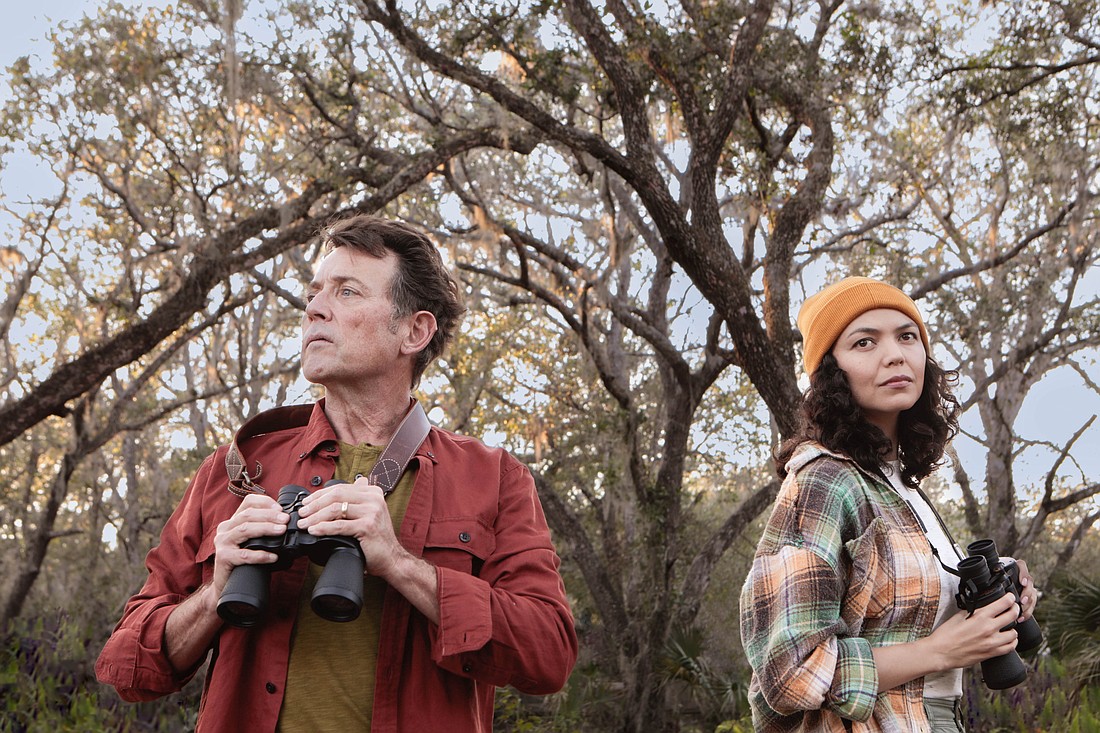- May 20, 2024
-
-
Loading

Loading

The cycles of life seem eternal on planet Earth.
Birds fly south for the winter. Children grow up to be parents. The old pass their wisdom on to the young. A kiss is just a kiss. A sigh is just a sigh.
The fundamental things apply as time goes by. That’s the way it’s always been. But in the 21st century, it’s not a sure thing anymore.
Climate change has disrupted life’s cycles. A winter may come when birds don’t fly. A generation may come who fear to bring children into this world.
Anna Ouyang Moench’s “Birds of North America” explores the impact of this ticking clock at the Urbanite Theatre. Her haunting play revolves around the yearly visits of a father and his daughter. We spoke to Director Summer Dawn Wallace about why the time they share matters.
There's a longing in this play. It’s both a longing to see birds and a longing to be seen — and that’s what I really love about it. Every fall, a daughter visits her father. John is passionate about bird watching. Caitlyn isn’t at first, but comes to share his passion. So they bird and chat; and try to connect. They use birding as a vehicle of communication.
At times, they’re slightly estranged, and won’t openly deal with it. As time passes, the world’s changing, the climate’s getting warmer, and there are fewer birds to see. Moench’s play is also really about time — or maybe the lack of time. The father and daughter long to bridge the gap and make a connection, but have limited time to do that. It’s a really beautiful character study — and it’s also study of what divides us and brings us together.
Yes. The playwright has an interesting take on the cross-generational divide. John grew up in a world of greater opportunities. That’s shifted in Caitlyn’s time. After graduating from college, she gets a job as a copyeditor for a conservative website. She doesn’t necessarily share their politics but she needs the money. Caitlyn’s passion is really literature and the novel she’s trying to write, but she set it aside to survive and make a living. Her father disapproves. And Caitlyn thinks he just doesn’t get it.
Right. And that’s one source of tension; though there’s also a lot of love between them. There’s a telling line in the stage direction: “John and Caitlyn take nearly everything the other says personally.”
Yeah. When their talk gets a little tense, the spectacle of a beautiful flock of birds will interrupt them. They’ll see the birds flying across the sky and that’ll totally pulls them out what they are (or aren’t) saying. After the birds depart, they’ll look at each other and get right back into it.
It’s a beautiful on-again, off-again rhythm.

We really trust the Urbanite audience to use their imaginations. Our world on stage will be a mix of realistic and unrealistic elements. Lighting and sound will help evoke a greater world beyond it. But evoking that world is mainly on the actors’ shoulders. Honest acting is always the secret sauce. If they imagine something, the audience will.
Exactly.
The time jumps show the passage of time and what has or hasn’t happened in this relationship since last we met the characters.
Very much so. Speeding up time reveals so much. You see how climate change has impacted the birds; how it’s impacted John; how it’s really impacted Caitlyn. In the big picture, there’s only so much time left.
But the clock is ticking in the small picture, too. John and Caitlyn have a tricky relationship. They’ve got so much love — and so many barriers. They don’t have forever to make progress or peace with each other.
It really would. And I like that, too!
That's a hard question. I’d like our audience to think about the ecological issues, of course. I also hope theatergoers will see themselves in the characters. And if there’s a conversation they’ve been putting off with someone they love, they should really have it as soon as possible.